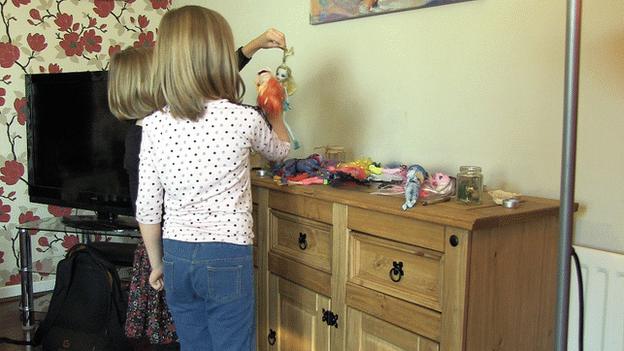Transgender children: Buying time by delaying puberty
- Published
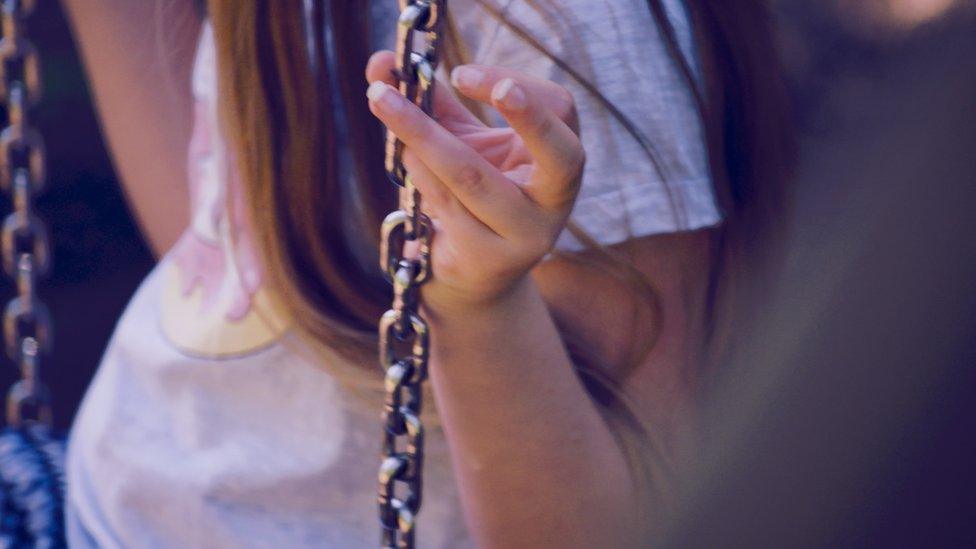
Jessica is preparing to move to secondary school.
More than 300 transgender children a year are now starting on a course of puberty-blocking drugs, figures seen by the Victoria Derbyshire programme show.
One of the transgender children we have been following for four years has now begun her treatment, which gives youngsters time to decide if they want to live as a man or a woman.
"I'm happy I've been given [the drugs] because now I know that I won't grow facial hair. I just don't want a beard - I'm a girl," says 11-year-old Jessica.
We have been following Jessica and her friend, Lily, as they have transitioned to live as girls at home and at primary school.
Jessica, now preparing for the move up to secondary in September, has recently started taking puberty-blocking injections once a month.
"If someone asks if I'm transgender, then I'll tell them. I won't yell it out but I will just say," she says.
You may also be interested in:
Botched Spanish art restoration criticised
World Cup reporter angry at kiss attempt
Police rescue dogs from 'blazing hot' car
"It's quite rude, honestly, when people say this is just a phase because they don't understand it really."
Cass, a 13-year-old transgender boy, has shared some of the abuse he has received.
The UK's main centre specialising in gender issues in under-18s is the Tavistock and Portman NHS Trust, based in London and Leeds.
The number of under-18s who visited the clinic in the last year has risen by 25% to 2,519 - around 50 a week.
Doctors there say there is no single explanation for the increase but there is growing recognition of transgender people in society and more awareness of treatment options.
Around 300 children a year are now referred to a separate clinic to start on hormone-blocking treatment which can only be prescribed on the NHS after the patient has started puberty.

Find out more
Watch the Victoria Derbyshire programme on weekdays between 09:00 and 11:00 on BBC Two and the BBC News Channel.
The story of two transgender children

The injections stop sex hormones from being produced and delay the development of breasts, deepening of the voice, or body hair. The physical effects are reversible, although doctors say the longer-term psychological impact is unknown.
The treatment, available to under-16s since 2011, is meant to delay the onset of puberty to give children more time to decide if they want to live as a man or woman.
Jessica's mother and stepfather both said they felt "relieved" for their daughter who was particularly worried about developing facial hair.
"I don't know whether to be happy or sad," said mum Ella.
"I know it's not the end and the effects are reversible. But for me it reaffirmed that this is the end of [my son] James."
"The most important thing to us is the happiness of our child, forcing them to try and be something they're not is not an option. We just want her to be happy, that's all."
Lily: 'Proper' woman
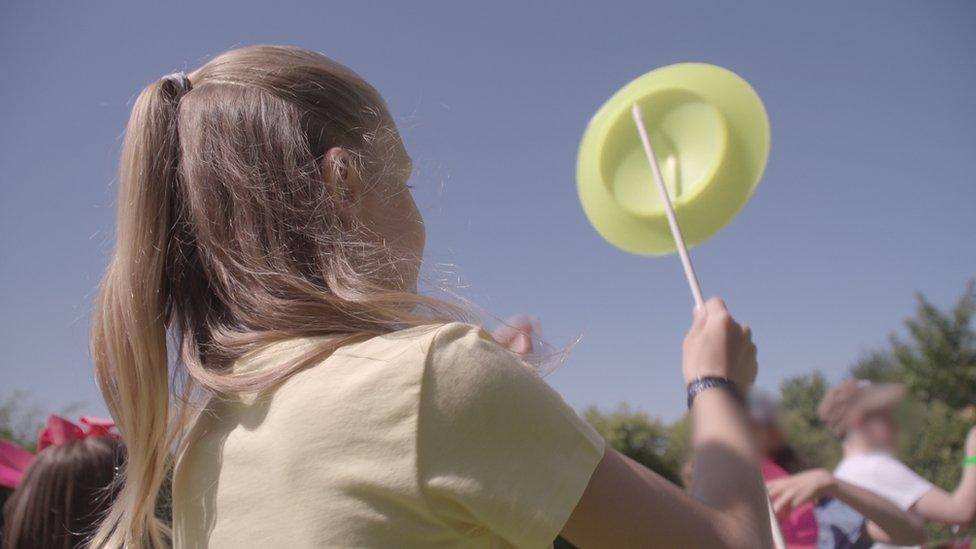
Lily is starting to think about secondary school.
Lily is now 10 and about to start her final year in primary school. Her decision to start living as a girl at school has gone about as smoothly as her parents could have hoped.
So far, her mum, Jen, says, it's been about helping her fit in and dealing with the odd nasty comment from one classmate, who said she would never be a "proper" woman.
"I have to do everything I can as a mother to protect my child - to talk to her so she knows how to deal with those comments - but also to talk to the other child's parents so they can help their child understand," she explains.
"I didn't want that child punishing, I think it's more about them being talked to and helped understand the situation because what he was saying was wrong. She can be a woman and develop as a woman and grow up as a lady if that's what she wants to do."
Lily herself said her friends stood up for her, but she feels "not good, upset," when comments like that are made.
Both girls recently spent the weekend at a camp for trans children and their families, run by the Mermaids charity.
It was attended by around 30 children between the ages of six and 19, who spend time socialising or in workshops on bullying, self-esteem or how to report hate crimes.
The charity keeps the location secret - 17 times in the past six months its founder, Suzie Green, has reported abusive online messages to the police. Eight cases in the past year have been investigated as suspected hate crimes.
"We were being called paedophiles, we were being accused of being child abusers," she says. "In fact they even did a mock-up of a van with puppies and sweets on the side saying that Mermaids are trawling infant schools trying to pick up children to make them trans. It is ridiculous."
More than half young trans people say they have been the victim of hate crime in the last year, according to research from the Stonewall charity.
Cass: 'We're humans'
Cass, 13, was sent an anonymous message on his phone threatening to tell everyone he was "not even a boy" if he turned up "alive at school" the next day.
"I get it that some people just do not understand, and that's OK - people have their own opinion on things," he says.
"I'm not going to try and change everyone's opinion but I think people should just know we are humans and just because we don't feel comfortable in our bodies, that's not a reason for people to send us hate."
Some names have been changed for this article.

For more information and support:
NHS page with general information, external.
The Tavistock and Portman NHS Foundation Trust, external - provides the only NHS gender identity service for under-18s.
The Gender Identity Development Service, external - the official website for the service, offering information and resources
Mermaids, external gives support for children, young people and their families
Gendered Intelligence, external gives support to young people
Gender Identity Research & Education Centre, external
Watch the BBC's Victoria Derbyshire programme on weekdays between 09:00 and 11:00 on BBC Two and the BBC News Channel.
- Published7 August 2017
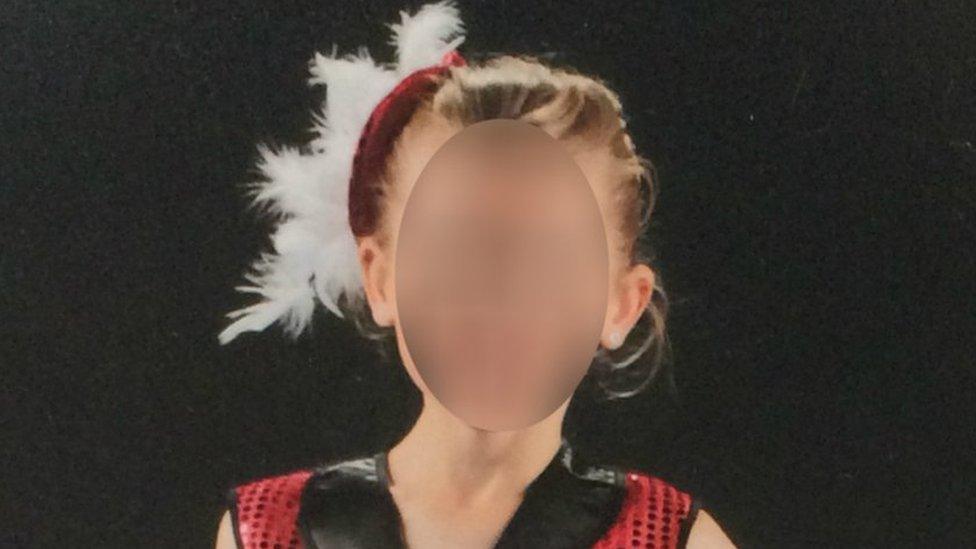
- Published3 May 2016
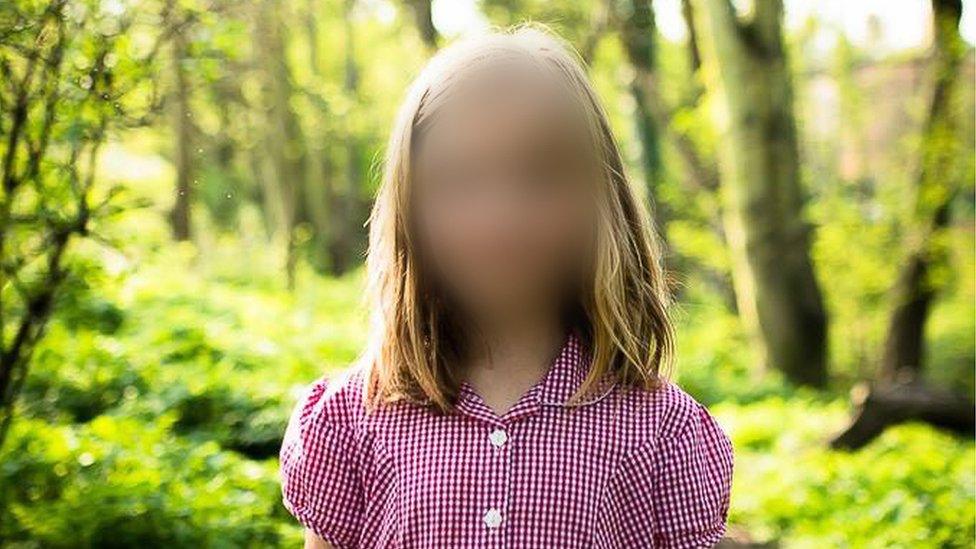
- Published7 April 2015
